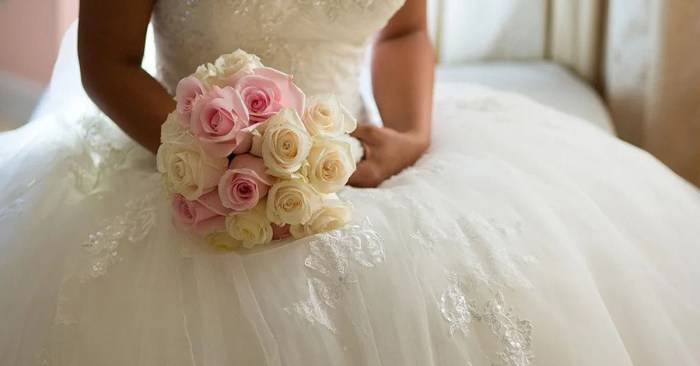Wedding Dress Cleaning: A Comprehensive Guide: Cleaners That Clean Wedding Dresses
Cleaners that clean wedding dresses – Preserving your wedding dress, a cherished symbol of your special day, requires careful consideration. This guide provides a detailed overview of wedding dress cleaning, covering various methods, stain removal techniques, preservation strategies, and cost considerations to help you make informed decisions.
Types of Cleaners for Wedding Dresses

Source: loveyourdress.ca
Several methods exist for cleaning wedding dresses, each with its own advantages and disadvantages. The choice depends on the fabric, embellishments, and the extent of soiling.
| Cleaner Type | Method | Pros | Cons |
|---|---|---|---|
| Dry Cleaning | Using specialized solvents to remove dirt and stains. | Gentle on delicate fabrics like silk and lace; effective for removing many stains. | Can be expensive; some solvents may cause discoloration or damage to certain fabrics. |
| Wet Cleaning | Soaking and washing the dress with specialized detergents and techniques. | Effective for removing stubborn stains; suitable for some heavier fabrics. | Higher risk of shrinkage or damage to delicate fabrics; requires expertise to avoid damage. |
| Hand Washing | Gently washing the dress by hand with mild detergent and cool water. | Most gentle method; ideal for extremely delicate fabrics and intricate embellishments. | Time-consuming; may not be effective for removing deeply embedded stains. |
Fabric suitability: Dry cleaning is generally preferred for silk, satin, and lace. Wet cleaning might be suitable for heavier fabrics like taffeta or brocade, while hand washing is best for extremely delicate fabrics and intricate beadwork. Chemical compositions vary widely, with dry cleaning using perchloroethylene or hydrocarbon solvents, and wet cleaning utilizing pH-neutral detergents. Improper use can lead to fabric damage, discoloration, or weakening of fibers.
The Wedding Dress Cleaning Process

Source: alexandersdrycleaners.net
Professional cleaning involves a methodical approach to ensure the dress’s preservation. The process varies depending on the chosen cleaning method.
- Inspection: A thorough examination of the dress to identify stains, damage, and embellishments.
- Pre-treatment: Addressing specific stains with appropriate spot cleaning techniques.
- Cleaning: Implementing the chosen cleaning method (dry cleaning, wet cleaning, or hand washing).
- Rinsing (Wet Cleaning): Thoroughly rinsing the dress to remove all traces of detergent.
- Drying: Carefully drying the dress to prevent wrinkles or damage.
- Pressing: Professionally pressing the dress to restore its original shape and appearance.
- Final Inspection: A final check for any remaining stains or damage before packaging.
A flowchart would show a decision tree based on fabric type (silk, satin, lace, etc.) and condition (heavily soiled, lightly soiled, presence of stains). Delicate embellishments require extra care, often hand-cleaned or protected during the cleaning process.
Stains and Damage Specific to Wedding Dresses
Wedding dresses are susceptible to various stains and damage. Effective removal and repair techniques are crucial for preserving the garment.
Common stains include wine, grass, makeup, and food. Stain removal methods vary depending on the stain type and fabric. For example, wine stains might require enzymatic cleaners, while grass stains may respond to oxygen bleach. Different fabrics react differently to various stain removal techniques, so expertise is crucial.
| Damage Type | Repair Method | Associated Costs (Estimate) |
|---|---|---|
| Tears | Seam repair, patching, or fabric replacement. | $50 – $200+ |
| Broken Seams | Resewing or reinforcement of seams. | $30 – $100+ |
| Loose Beads | Resecuring loose beads or replacing missing ones. | $20 – $80+ |
Preservation and Storage of Cleaned Wedding Dresses

Source: weddingdresscleaninglaundry.com
Proper storage is essential to maintain the condition of your cleaned wedding dress.
- Use acid-free tissue paper to prevent discoloration and yellowing.
- Store the dress in a breathable garment bag to allow for air circulation and prevent mildew.
- Keep the dress in a cool, dark, and dry place, away from direct sunlight and moisture.
- Avoid using plastic bags, as they can trap moisture and lead to damage.
- Inspect the dress periodically for any signs of damage or discoloration.
An infographic would visually represent the ideal storage environment: A cool temperature (around 65-70°F), low humidity (below 50%), and minimal light exposure. The infographic would use icons to represent these factors, perhaps a thermometer, a humidity gauge, and a sun partially obscured by a cloud.
Cost Considerations and Choosing a Cleaner, Cleaners that clean wedding dresses
The cost of wedding dress cleaning varies depending on the method, fabric, and extent of cleaning required.
| Cleaning Method | Average Cost (Estimate) |
|---|---|
| Dry Cleaning | $150 – $300+ |
| Wet Cleaning | $200 – $400+ |
| Hand Washing | $100 – $250+ |
Choosing a reputable cleaner is crucial. Consider these factors:
- Experience with wedding dress cleaning.
- Positive reviews and testimonials from past clients.
- Insurance coverage to protect against potential damage.
- Transparency in pricing and the cleaning process.
Before making a decision, ask potential cleaners these questions:
- What cleaning method do you recommend for my dress?
- What is your experience with dresses made from [fabric type]?
- Do you have insurance to cover any potential damage?
- What is your turnaround time?
- What is your pricing structure?
Frequently Asked Questions
How long does it take to clean a wedding dress?
Cleaning time varies depending on the dress’s condition, fabric, and embellishments, but typically ranges from a few weeks to several months.
Can I wash my wedding dress myself?
It’s strongly discouraged. Attempting to clean a wedding dress at home can cause irreversible damage due to the delicate fabrics and intricate details.
What if my wedding dress has significant damage?
Reputable cleaners can often repair minor damages, but extensive repairs may require a specialist seamstress or restoration expert.
What type of insurance should a wedding dress cleaner have?
A reputable cleaner should have liability insurance to cover any accidental damage to your gown.
